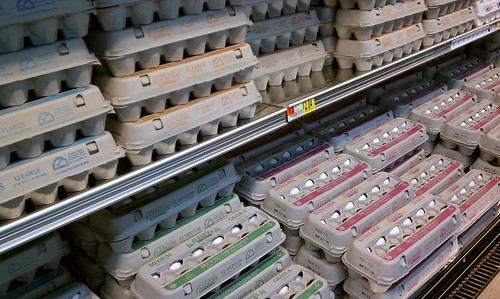 |
| Fun reusable shopping bags from Baggu |
Though
recyclable, plastic shopping bags cannot be deposited in curbside recycling
bins since they can clog recycling machinery, damage equipment and interfere
with the sorting process. However most grocery stores offer plastic bag
recycling bins, and plastic bags can be taken directly to some recycling
facilities such as the ACC solid waste department.
An alternative to plastic bags is to request paper bags, which can be recycled
with the rest of your paper products. Contrary to popular belief, paper bags
are actually no more environmentally friendly than plastic. In fact, even more
energy is required in the recycling and transport of paper bags than that of
plastic.
Here lies the problem: paper or plastic? Instead of regular shopping bags, stock up on reusable bags. On average, the lifespan of a reusable grocery bag is equal to more than seven hundred plastic bags, and by just one person switching over to reusable grocery sacs, over 22,000 plastic bags would be saved. Most grocery stores provide well-priced reusable bags, and online stores sell all types of designs and colors. You can also get crafty and try sewing your own out of an old t-shirt. Substituting reusable bags for their paper or plastic counterparts cuts down on waste as well as the amount of energy used in production and recycling.
-- Claire Ruhlin, Community Intern






